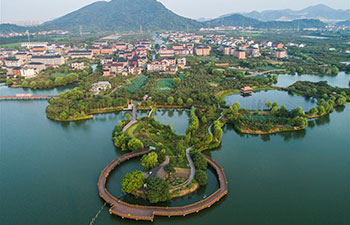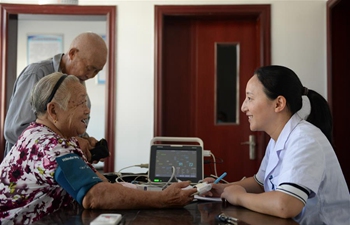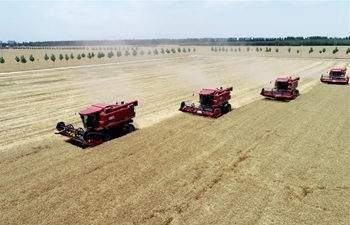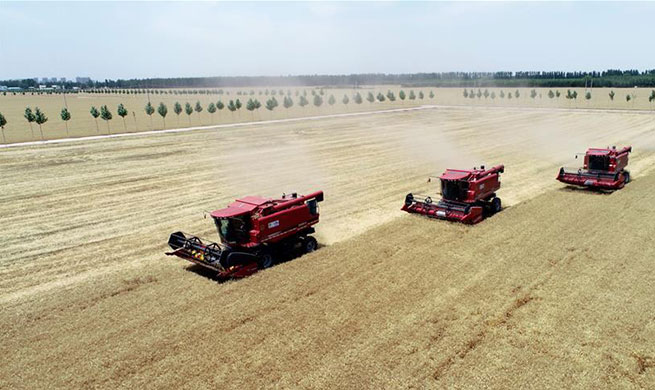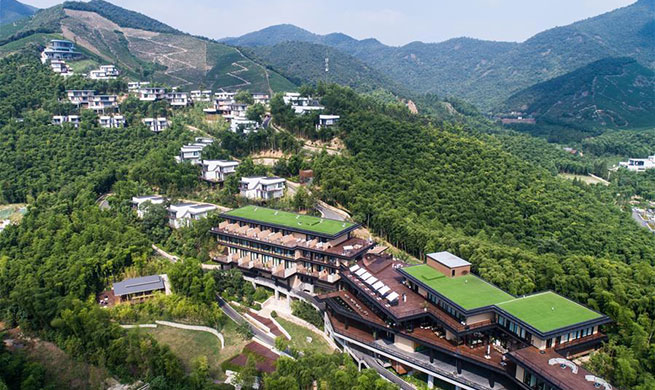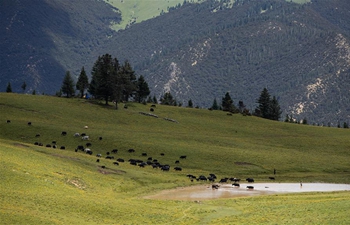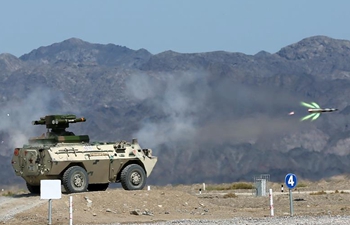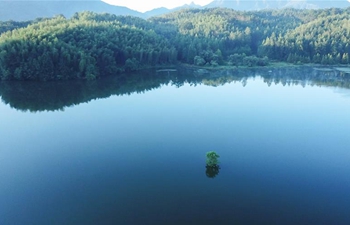ANKARA, Aug. 7 (Xinhua) -- Turkey and the United States will immediately establish a Joint Operations Centre in Turkey for coordination and management of a planned safe zone in northern Syria, Turkish Defense Ministry said on Wednesday.
The statement came after three-day talks between Turkish officials and a visiting U.S. military delegation. A joint statement by Turkey and the U.S. said both sides agreed to a "rapid implementation of initial measures" to address Turkey's security concerns.
The delegations agreed to set up "a Joint Operations Center in Turkey as soon as possible in order to coordinate and manage the establishment of the safe zone together," the statement said.
The ministry added that "the safe zone shall become a peace corridor, and every effort shall be made so that displaced Syrians can return to their country."
The joint declaration did not specify the modalities of the planned safe zone.
The U.S. military delegation has come to Ankara for discussions on a U.S. proposal for a safe zone near Turkish border after repeated warnings of the Turkish leadership for a military offensive on the neighboring Syria against Kurdish militia that it views as a "grave security threat."
The U.S. wants no permanent deployment of Turkish troops, but it offers patrols by Turkish and U.S. soldiers in the safe zone, a diplomat, familiar with the talks, told Xinhua on condition of anonymity.
The U.S. is also open to Turkish observation points in some of the areas in the potential safe zone, similar to the U.S. check points in the region, the diplomat added. Washington will ensure that the Kurdish People's Protection Units (YPG) fighters will retreat from the area of safe zone.
Turkish President Recep Tayyip Erdogan has issued several warnings in recent days, expressing that the patience is running out.
The operation will be carried out in the east of the Euphrates River in northern Syria as soon as possible to the area controlled by the YPG, the Turkish leader said on Aug. 4.
Erdogan said that both Russia and the U.S. had been informed of the operation. Meanwhile, Ankara has reinforced forces along its border with Syria across YPG-controlled area.
Turkey has repeatedly requested the creation of a 32-km safe zone in northern Syria and stressed that it wanted the YPG cleared from this area.
However, the latest U.S proposal envisaged sinuous area of control for a depth between 5 and 15 kilometers.
Turkey sees the Kurdish YPG militia as a terrorist offshoot of the Kurdistan Workers' Party (PKK) and says the YPG group poses threat to the Turkish territory.
The U.S. has supported the Syrian Kurdish fighters as its main fighting force against the Islamic State (IS) group in Syria and sought to find a midway between the concerns of its NATO ally and its main partner on the ground in Syria.
Eastern Euphrates and that region are largely controlled by the Kurdish forces with the presence of U.S. troops and military advisors.
The U.S also provided arms to the Syrian Kurdish fighters, a move which Ankara fiercely objected. Turkey urges Washington to collect all the heavy weapons it delivered to the YPG during its fight against the IS.
Turkey's Defense Minister Hulusi Akar said on Wednesday that talks with the U.S. aimed at averting the need for a Turkish military intervention into northern Syria had been "positive" and the opinions of the U.S. delegation was "closer" to Turkish position.
"Our plans on the Syrian safe zone and the deployment of our troops in the field have been completed," he said, but noted that Ankara wants to realize the safe zone with the U.S.
"We would prefer to act together with our U.S. ally. If that isn't possible, we have said multiple times that we will do what is necessary," Akar said.
Turkish army has twice carried out unilateral offensives into northern Syria against the IS group and YPG, in 2016 and 2018 respectively.
The Turkish forces and Turkey-backed rebels stormed Afrin and captured it from the Kurdish YPG in 2018.
If Turkey builds up its military presence in the east of Euphrates, the safe zone will provide the country to secure a strip of land stretching more than 400 km along Syria's northeastern border with Turkey, what Ankara identifies as "peace corridor."





